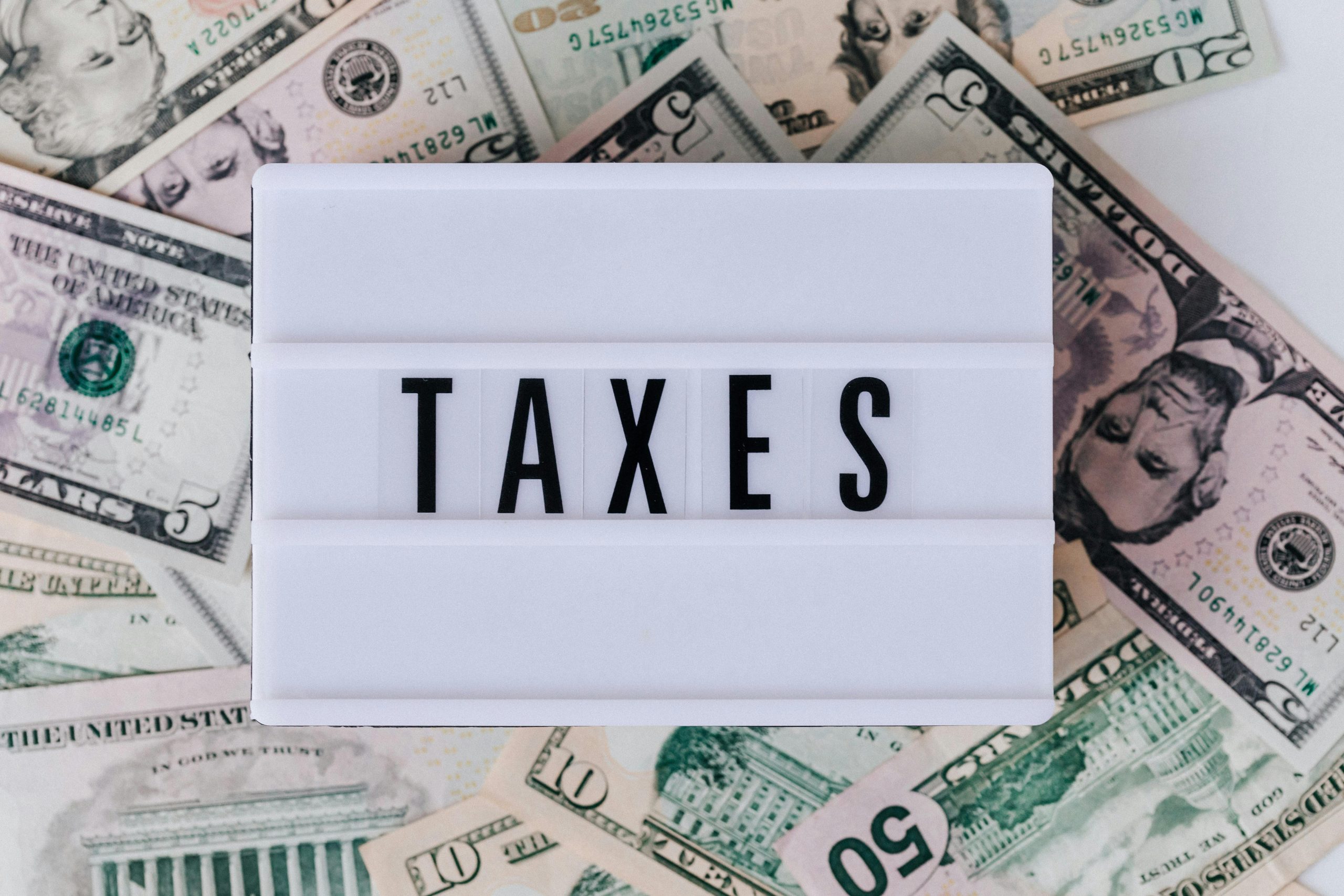
Table of Contents
If you're an Amazon seller, it's essential to understand your tax obligations, including the collection and payment of taxes to comply with local and international tax regulations and avoid any type of fraud.
At Jordi Ordóñez, we have created this guide to answer the most frequently asked questions about taxes for Amazon sellers.
FAQs about taxes for Amazon sellers
Selling on Amazon can be a great business opportunity, but it comes with a range of tax responsibilities that every seller should be aware of. Below, we answer some of the most common questions about taxes for Amazon sellers, providing clarity on key aspects such as VAT, payments, and the collection of tax information.
How much tax does Amazon pay?
Amazon, as a platform, acts as an intermediary between buyers and sellers. However, Amazon does not directly pay taxes on the sales made by its sellers. Instead, the responsibility of paying taxes falls on the sellers, who must comply with the tax regulations of their country of residence and the countries where they operate. Depending on the location, this may include taxes such as VAT (Value Added Tax), income tax, and other local or international taxes.
Amazon facilitates the process in some countries by managing VAT collection on behalf of sellers. However, the seller is still responsible for filing their tax return and paying the taxes to the relevant tax authorities.
Why does Amazon request tax information?
When you register as a seller on Amazon, you'll be asked for tax information, which may include your tax identification number (TIN), address, and other personal details. This is done for several reasons:
- Tax Compliance: Amazon is required by law to ensure that its sellers comply with local and international tax regulations. This includes the proper collection and remittance of taxes like VAT.
- Fraud Prevention: The platform uses this information to verify the identity of sellers and prevent fraudulent activities, such as the use of fake identities.
- Tax Authority Requirements: In many countries, tax authorities require platforms like Amazon to collect and verify tax information from their sellers to ensure they are meeting their tax obligations.
When does Amazon pay sellers?
Amazon pays sellers according to a payment cycle, typically every 14 days. However, payment is only made if certain requirements have been met, such as the successful delivery of products and the resolution of any issues related to returns or disputes.
It's important to note that the processing time for payments also depends on the platform's policy in the country where you sell. Additionally, Amazon may withhold part of the seller's earnings to cover costs related to using its services (commissions, storage fees, shipping fees, etc.).
From a tax perspective, the payments made by Amazon may be subject to withholding taxes, depending on the country you're operating in. It's essential to keep these withholdings in mind and be prepared to meet your local tax obligations.
Who pays VAT on Amazon?
VAT (Value Added Tax) is one of the most common taxes that Amazon sellers need to manage. In most countries, if you sell products to end consumers, you are responsible for collecting VAT on your sales. However, Amazon has implemented certain policies that affect how VAT is handled on its platform.
- In the EU and UK: Amazon collects VAT on behalf of sellers in some circumstances and in some countries. If Amazon doesn't do this, the seller is responsible for collecting and remitting VAT directly to the tax authorities.
- In the United States: Amazon does not collect VAT, but it may collect “sales tax” in certain states, depending on local tax laws.
It's important that, as a seller, you understand whether you need to apply VAT on your products and how to manage it in your tax return.
Important considerations for selling on Amazon
Selling on Amazon not only requires a solid product and marketing strategy but also proper management of your tax responsibilities. Below, we explore the main considerations every seller should be aware of when selling on Amazon.
You may be interested in our Ebook: Guide to Selling on Amazon
Selling on Amazon as an individual
If you choose to sell on Amazon as an individual, you can do so, but you should be aware that your tax obligations and Amazon's rules will remain the same as if you were a business. This means that you'll need to pay taxes on your income and comply with the tax regulations that apply to your situation.
However, there's an important difference: in many countries, individuals have a sales threshold below which they are not required to register as a business or collect VAT. For example, in the European Union, if your sales do not exceed EUR 10,000 annually, you can sell without needing to collect VAT. However, if you exceed this threshold, you'll be required to register for tax purposes and apply the relevant VAT.
Is selling on Amazon profitable?
Selling on Amazon can be profitable, but it also has its costs. Amazon charges commissions on each sale made on its platform, which may vary depending on the type of product and the seller plan you choose. Additionally, you should account for other costs, such as storage in Amazon's fulfillment centers (if you use FBA), shipping costs, marketing, and, of course, taxes.
To determine whether selling on Amazon is profitable, you should consider your profit margins, competition in your market niche, and how taxes are managed in your country and in the countries where you sell.
Can I sell on Amazon without a business?
Yes, you can sell on Amazon without having a registered business, but you must comply with your country's tax regulations. If you're an individual and plan to sell products occasionally, in many countries, you won't need to have a business. However, you should make sure your earnings do not exceed the limits set by local tax authorities, as if you exceed certain thresholds, you'll be required to register as a business.
If you plan to sell regularly and professionally, it's recommended that you register as a business to better manage your taxes and tax deductions.
How to sell on Amazon from Spain
If you're based in Spain and want to sell on Amazon, there are several tax aspects to consider:
- Tax Registration: You'll need a Tax Identification Number (NIF) and be registered in the business census if your activity is habitual.
- VAT: If you sell products in Spain or other EU countries, you'll need to apply the relevant VAT based on the destination country of the goods.
- Tax Filing: As a seller, you’ll need to file VAT and income tax returns (if applicable) and comply with the tax regulations of each country where you sell.
Amazon seller countries list 2024
In 2024, Amazon operates in over 20 countries, allowing you to reach customers worldwide. The countries on the list include the United States, Canada, EU members, Japan, India, Australia, and Brazil, among others.
If you sell in multiple countries, you'll need to consider the tax regulations of each one. In some countries, Amazon will manage VAT for you, but in others, you'll be responsible for collecting it.
Other ways to sell on Amazon
In addition to direct product sales, Amazon offers several options for sellers to reach more customers and optimize their operations. Each of these alternatives has tax and logistical implications that are important to understand. Below, we explore some of the alternative ways to sell on Amazon and how they may impact your strategy and tax responsibilities.
How to sell on Amazon Business
Selling on Amazon Business allows you to offer products to other businesses, which can be a lucrative market. However, the tax requirements differ, and you may need to manage VAT differently depending on the type of customer (business or end consumer).
How to sell on Amazon without inventory
If you don't want to manage inventory, you can use the Fulfillment by Amazon (FBA) program or the dropshipping model. In both cases, you’ll need to be aware of how taxes apply depending on the location of your suppliers and customers.
Do you have questions or need help managing your taxes as an Amazon seller? Don’t hesitate to contact Jordi Ordóñez. We are here to help you navigate the tax world and optimize your business on Amazon.
More posts
About the author
Jordi Ordonez
I’m an independent eCommerce and Amazon consultant.
Clients
I've worked with brands like Estrella Damm, Intersport, Bella Aurora, Lladró, Textura Interiors, Nice Things Palomas, Castañer, Due-Home, and many others.
Lecturer & Teacher
I’ve spoken and taught at events such as Meet Magento, PrestaShop Day, SEMrush, Cambra de Comerç Barcelona, ClinicSEO, EcommBeers, EcommBrunch, Ecommercetour.com, EcommFest, EOI, ESIC-ICEMD, Foxize, Generalitat de Catalunya, Inesdi, Quondos, and The Valley. I’ve also delivered in-company training sessions for major brands like Orange and Adidas.
Writer
I regularly contribute articles to the Helium 10 blog, Shopify, SEMrush, La Vanguardia, eCommerce News, Marketing4ecommerce, and others.
Partner
Helium 10, Jungle Scout, Avask, Helium 10 Seller Solutions Hub Partner, SaaS4Marketing, H10-wp.com, FBASuite.com, and a Trusted Partner of Tracefuse.
Social
LinkedIn, Twitter, Wikipedia, YouTube, Quora, ISNI 0000000513224289, About Jordi Ordonez




